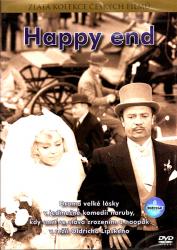
(Directed by Josef von Sternberg, 1928, USA)
(Notes from the 46th New York Film Festival, 2008, Part 2)
Emil Jannings was one of the great stars of the silent and early talkie cinema. In my mind, he will be forever associated with F.W. Murnau's silent version of "Faust" playing Mefistofeles, as the downsized hotel porter in Murnau's "The Last Laugh", as the jealous husband in Dupont's "Variety" and von Sternberg's later "Der blaue Engel" ("The Blue Angel"), the film that made Marlene Dietrich a worldwide superstar overnight. Also he was the first actor to win the Academy Award in 1929 for this film and for the (unfortunately) lost silent film, "The Way of All Flesh".
It was interesting that the NY Film Festival would present a restored lovely 35mm print of this film, with a score by silent movie music vets Alloy Orchestra.
The rather convoluted plot concerns a prologue with William Powell as a director casting for a film on the Russian Revolution; while leafing through 8 x 10 glossies, he finds a photo of an old man and wants him for an extra. This leads to a search through a rooming house and a twitchy old man (Jannings) gets the call. He decided to go to Hollywood Central Casting, c. 1920's There is a superb tracking shot of extras going from window to window getting various bits of costume. When someone questions the old guy about a medal he's wearing, he replies he received, he replies "From the Tsar!" After a bit of teasing and tag with the medal, the plot develops to a long flashback back to Tsarist Russia pre-revolution and the old twitcher was a top general in the Tsarist army, and the director (Powell) was a Russian theatrical director suspected of being an anarchist, along with his beautiful sidekick Natalya (the lovely Evelyn Brent).
The fairly melodrammatic plot pits the eventual seduction to power of the lovely Natalya, who enjoys her role as a Tsarist general's mistress. Once the revolution happens though, she reveals her true feelings for the pompous codger, saving him from an anarchist's bomb aboard a train, but not before his humiliation before the revolutionaries. Saved from destruction, (from Natalya's intervention) he develops his facial tic while realizing he is responsible for Natalya's death.
The film flashes forward to the bleak present, wherein the director (Powell) goads the general to his final humiliation in a film studio, the 'last command' of the title.
Josef von Sternberg's films were usually celebrations of the grittiness of life or of decadence ("The Blue Angel", "The Scarlet Empress", "The Shanghai Gesture"). "The Lost Command" is as melodrammatic as most silent movies can be, but the performances of Evelyn Brent and Emil Jannings make the film, as well as the director's visual style. While not great cinamatic art, Sternberg's film compresses quite a lot in its 88 minutes runtime.





